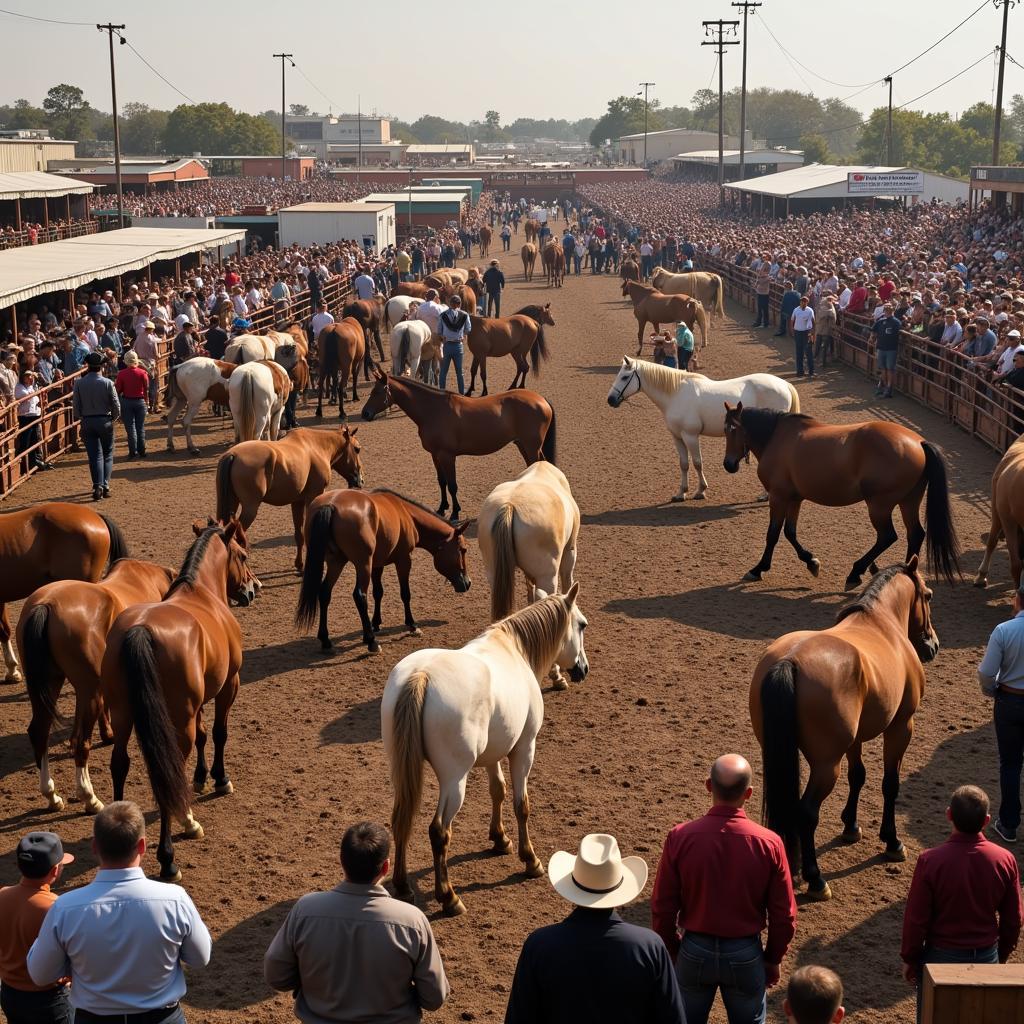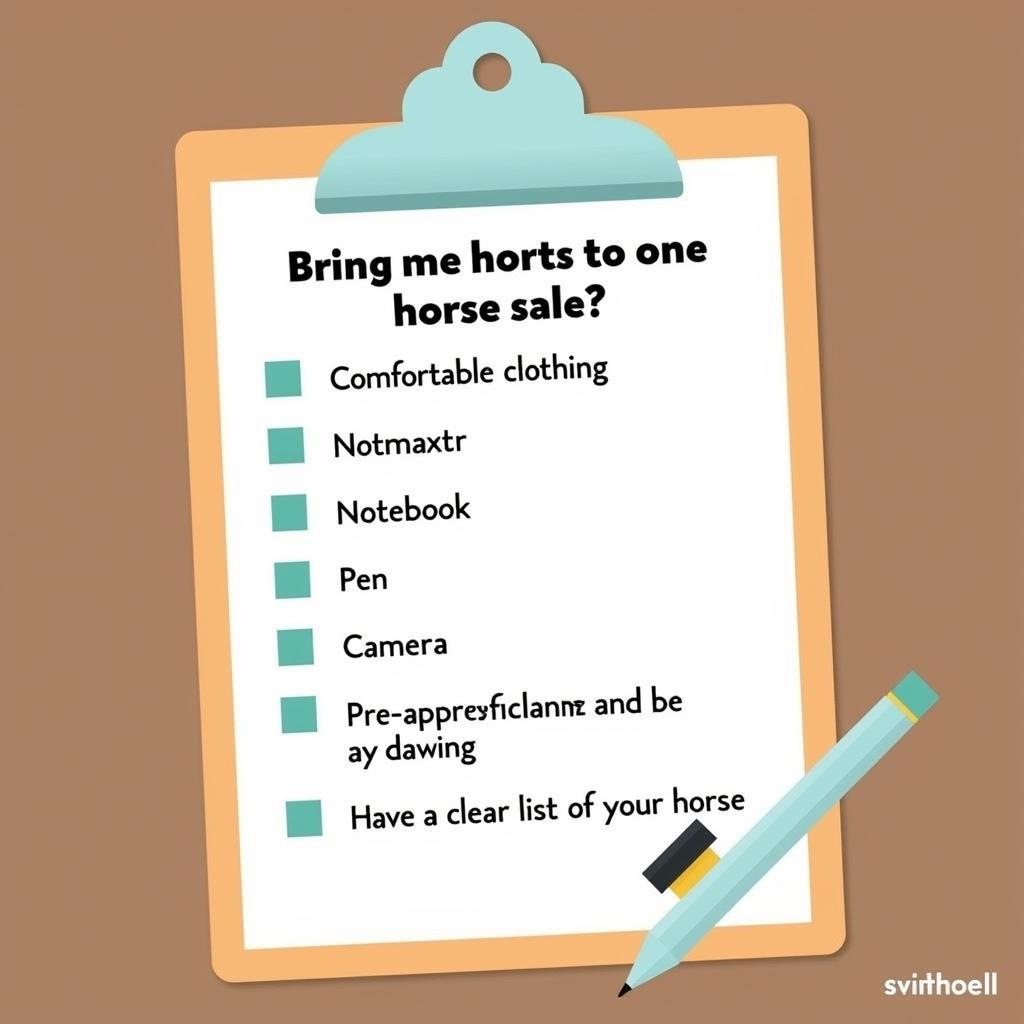Lonestar Horse Sales offer a fantastic opportunity to find your ideal equine companion. Whether you’re a seasoned rider or just starting your equestrian journey, navigating the world of horse sales can be daunting. This guide provides valuable insights and expert advice to help you confidently navigate lonestar horse sales and find the perfect horse for you.
Understanding the Lonestar Horse Market
The Texas horse market, often associated with the “lonestar” moniker, is diverse and vibrant. It caters to a wide range of disciplines, from western pleasure and reining to barrel racing and dressage. Understanding the nuances of this market is crucial for a successful buying experience. Factors like breed, age, training, and intended use significantly influence a horse’s price. Researching these elements beforehand will help you narrow your search and establish realistic expectations. Knowing what disciplines are popular in the Lonestar state can also help you connect with sellers specializing in your area of interest.
Are you looking for a reliable trail horse? Or perhaps a competitive show jumper? Defining your needs is the first step. Consider your riding experience, desired discipline, and long-term goals. This clarity will guide your search and prevent you from being overwhelmed by the vast selection available at lonestar horse sales.
 Lonestar Horse Sale Scene
Lonestar Horse Sale Scene
Preparing for Lonestar Horse Sales
Before attending any lonestar horse sales, thorough preparation is essential. Create a checklist of must-have qualities in a horse. This list should include factors like temperament, conformation, and health history. Having a clear picture of your ideal horse will help you stay focused and avoid impulsive purchases. Pre-approving your financing is also a wise move, allowing you to bid confidently knowing your budget.
What should you bring to a lonestar horse sale? Essential items include comfortable attire suitable for observing horses, a notebook and pen to jot down notes, and a camera to capture photos or videos of horses that catch your eye. Bringing a knowledgeable friend or equine professional can also provide valuable second opinions and insights.
 Horse Sale Checklist Essentials
Horse Sale Checklist Essentials
Evaluating Horses at a Sale
Once at the sale, carefully observe the horses. Watch their movement, both in hand and under saddle, if possible. Pay attention to their temperament and how they interact with handlers. Don’t hesitate to ask questions about the horse’s history, training, and any known health issues. A pre-purchase veterinary examination is highly recommended to identify potential problems before finalizing the sale.
How can you assess a horse’s temperament at a sale? Observe the horse’s body language. Look for signs of calmness, alertness, and responsiveness. Watch how the horse interacts with people and other horses. Ask the seller about the horse’s personality and typical behavior.
“A calm demeanor and responsiveness to cues are key indicators of a well-trained and agreeable horse,” says renowned equine behaviorist Dr. Emily Carter. “Don’t overlook these subtle signs, as they can reveal a lot about a horse’s temperament and suitability for your needs.”
Negotiating and Finalizing the Purchase
Once you’ve found a horse that meets your criteria, it’s time to negotiate the price. Be prepared to walk away if the price exceeds your budget or if you have any reservations about the horse. After agreeing on a price, ensure all necessary paperwork, including a bill of sale and transfer of ownership documents, is completed accurately.
What are common negotiation tactics at horse sales? Being polite and respectful is paramount. Start by offering a price slightly below your maximum budget, leaving room for negotiation. Be prepared to justify your offer based on the horse’s age, training, and any perceived flaws.
“Negotiating a fair price is a delicate dance,” says experienced horse trader, John Miller. “Be confident in your research and don’t be afraid to walk away if the deal doesn’t feel right.”
Conclusion
Lonestar horse sales present a unique opportunity to find your perfect equine partner. By following these guidelines, you can navigate the process with confidence and find a horse that brings you years of joy and companionship. Remember to prioritize your needs and budget, and never hesitate to seek expert advice. Good luck in your search for the ideal horse at lonestar horse sales!
FAQ
- What is the average price of a horse at a lonestar horse sale? (Prices vary greatly depending on breed, age, training, and discipline.)
- Are pre-purchase veterinary exams necessary? (Highly recommended to identify potential health issues.)
- What should I look for in a horse’s conformation? (Soundness, balance, and suitability for your chosen discipline.)
- How can I tell if a horse is a good fit for my riding ability? (Consider the horse’s temperament, training level, and your own experience.)
- What paperwork is required to finalize a horse purchase? (Bill of sale, transfer of ownership documents, and any health certificates.)
- What are some reputable lonestar horse sales? (Research online and ask for recommendations from local equine professionals.)
- What should I do if I have a dispute with a seller after purchasing a horse? (Consult with an equine attorney and consider mediation or arbitration.)
Need assistance with your lonestar horse sale journey? Contact us! Phone: 0772127271, Email: [email protected] or visit us at QGM2+WX2, Vị Trung, Vị Thuỷ, Hậu Giang, Việt Nam. Our 24/7 customer support team is ready to help.